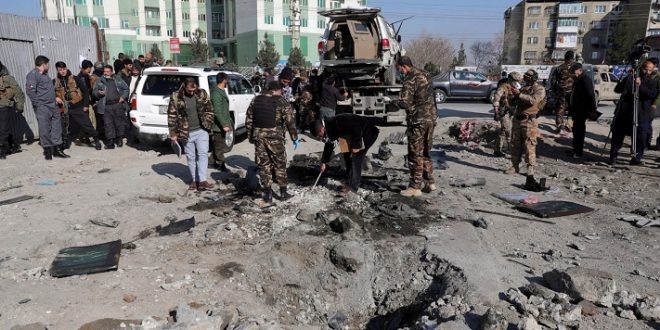By Basir Qazizada
The Afghan people are continuing to bear the brunt of ongoing deadly war in Afghanistan. The non-stop shackling violence is taking a huge toll on the Afghans, who are yearning for peace in the last four decades. The civilians are paying the price of the war. Recently, 11 members of a single family were killed and some five others received injuries in a strike conducted by the Afghan Air Forces. Taliban rebels also kill the ordinary Afghans in different act of violence. Taliban and other militant groups are more responsible for the civilian killings than the Afghan security forces.
Forty years of war and violence have had a profound negative impact on the psyche of the Afghan nation. I can share with certainty that every single Afghan family has lost a loved one to this insidious war. Despite the resilience of the brave people of Afghanistan, this war has had a prolonged traumatizing effect with deep psychological scars and devastating mental health issues on individuals, families and communities.
The fall of the Taliban insurgent’s regime, the withdrawal of al-Qaeda from Afghanistan and the announcement of the interim government at the Bonn Conference revived the Afghan people’s belief in the country’s political stability. The international community’s support for Afghanistan’s development, strengthening good governance and strengthening various sectors has increased the young generation’s hopes of a peaceful Afghanistan once again and as a result, they have never overlooked their responsibilities to the community.
As a socially aware segment of the Afghan population, the young generations have done their best to strengthen their capacities. They pursued higher education, entered international competitions and achieved much in fields such as technology, science, art and sports. Not only this, but they have also participated in the enrichment of various sectors in government.
In this process, not only boys and young men, but also girls and young women became active in different areas. The participation of women in the education sector and their movement towards employment and office building has increased the hope for stability, growth and development of the community.
But despite all these efforts, why does nothing change in Afghanistan? The problem is that operations by terrorist groups such as the Taliban and ISIS have reduced the community’s hopes of development and welfare. The efforts of the youth are being destroyed before they make an impact. Young people cannot see the results of their long struggles, and some have even died hoping to see their wishes come true.
The Taliban terrorist attacks on school, burning school, the targeting of female students through spraying acid in their faces, the sexual harassment of female, and other acts of this kind indicate that Afghan people no longer see signs of progress in their country. They are beginning to lose their belief in future improvement and the attainment of stability, development and peace within society.
 Afghanistan Times
Afghanistan Times




